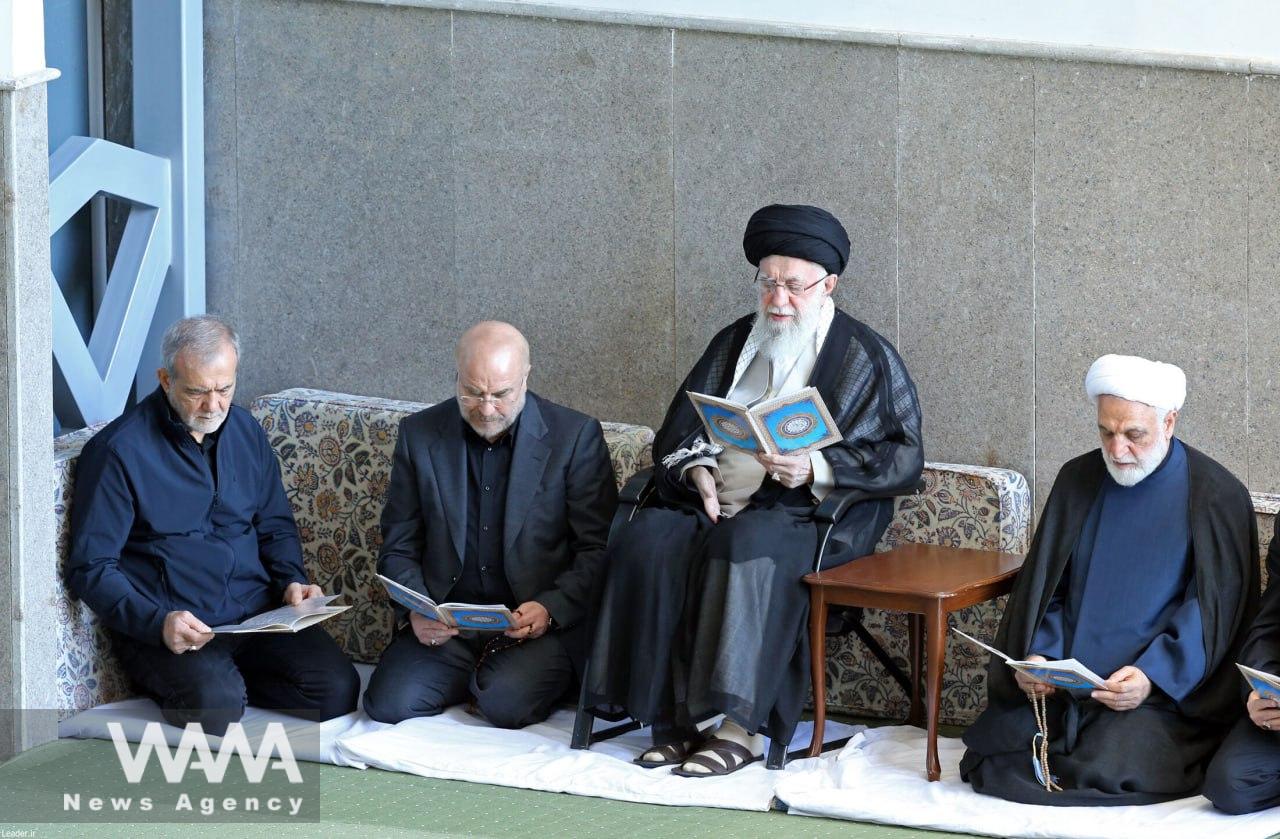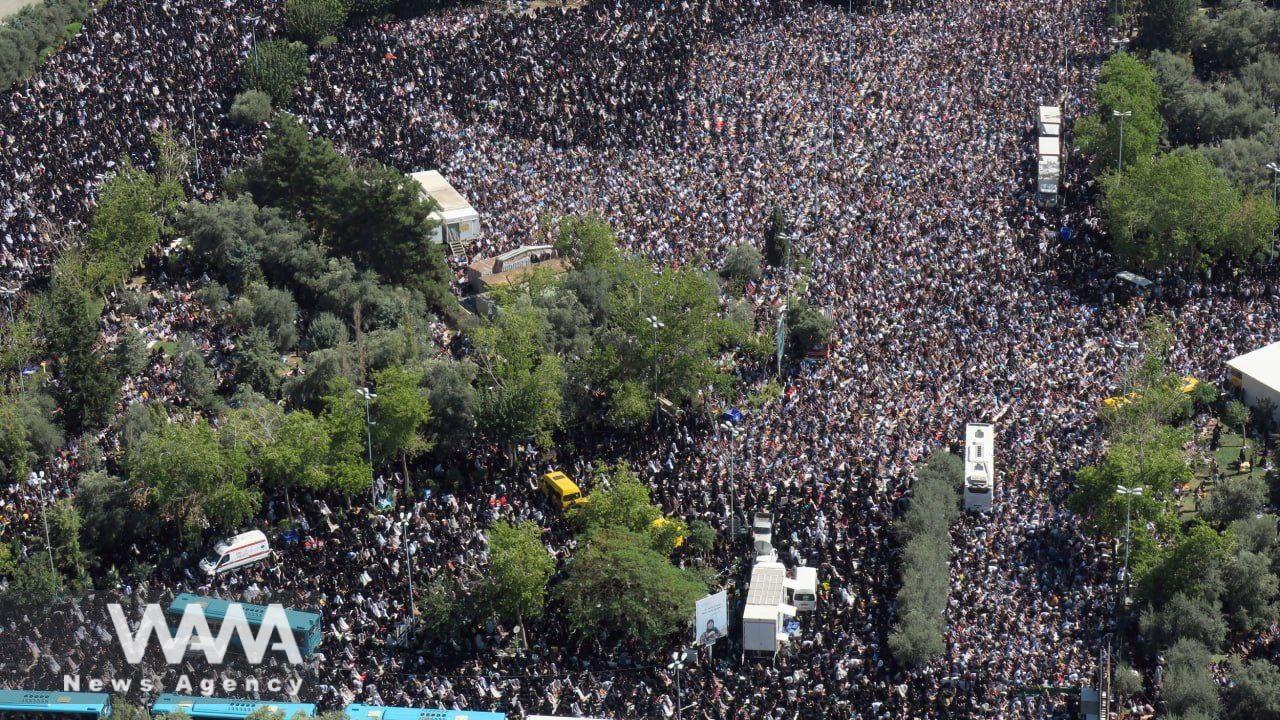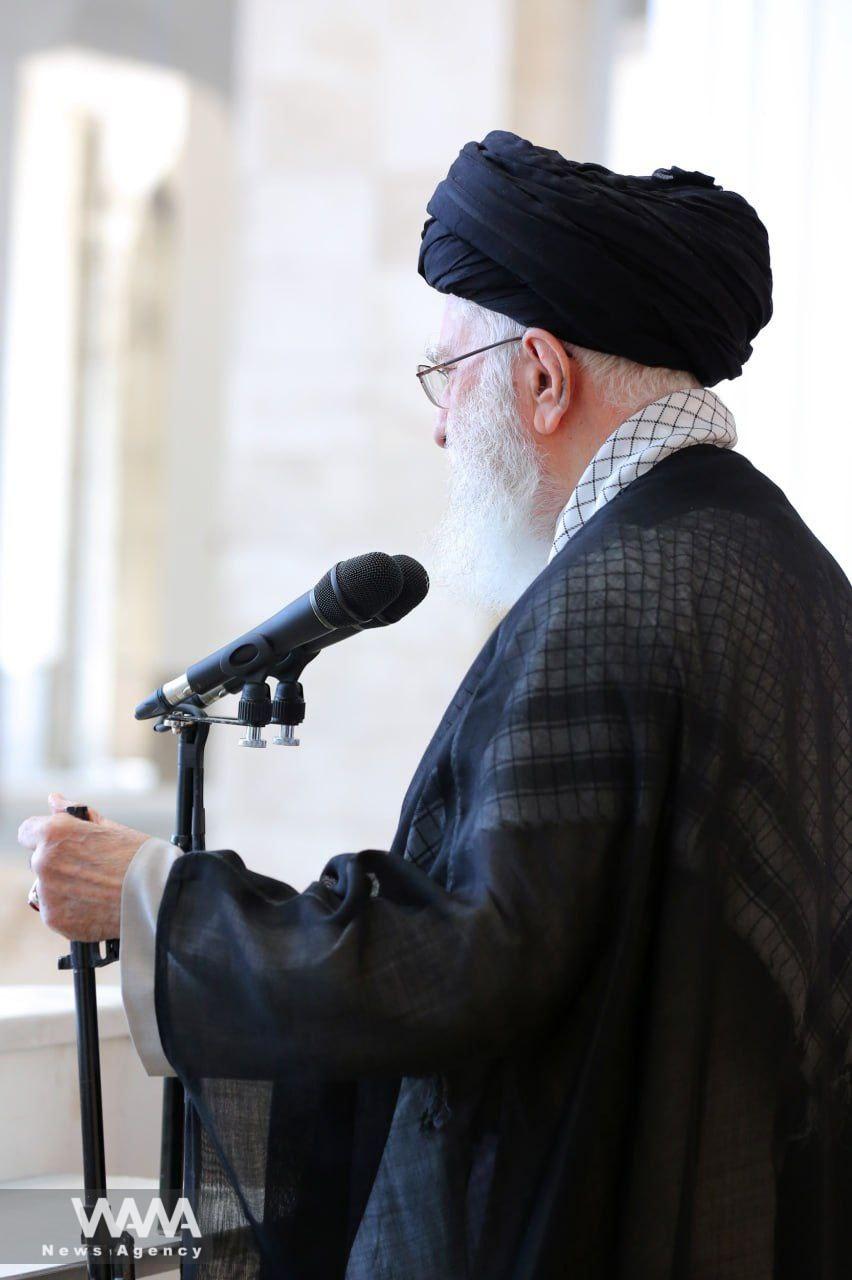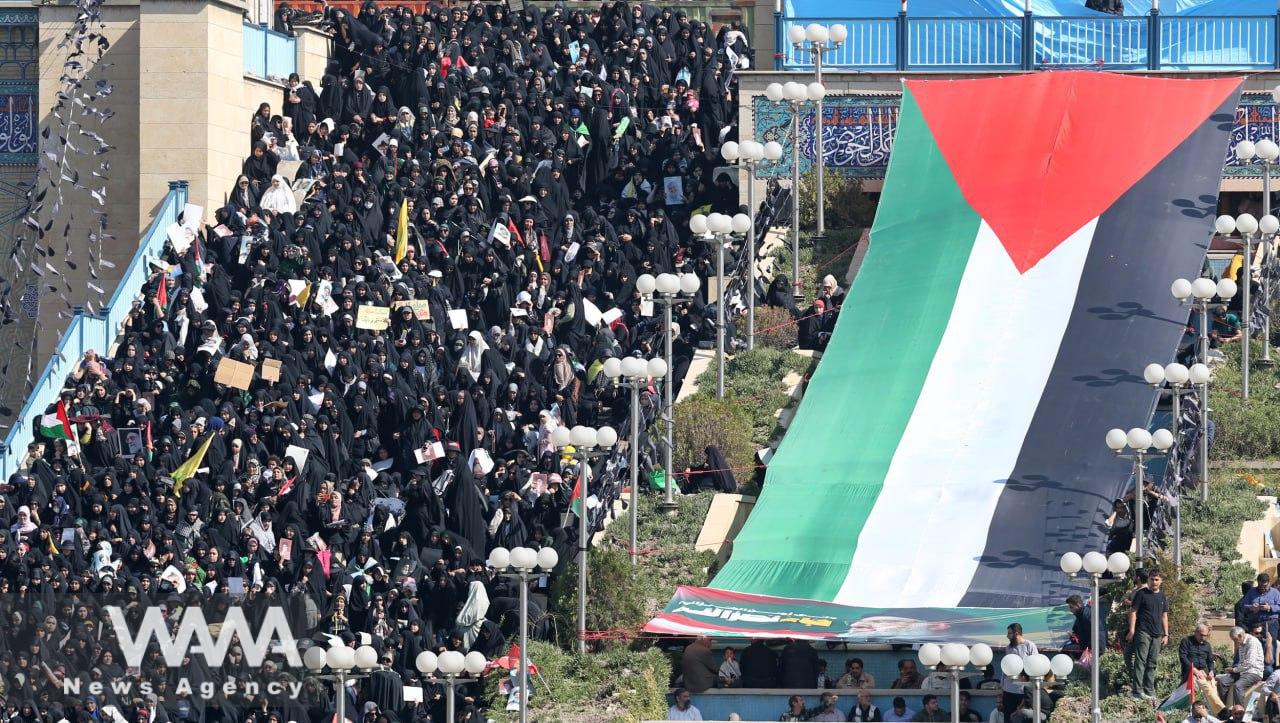Iran’s Leader’s Speech on Victory Friday: A Display of Power and Unity
WANA (Oct 04) – Today’s speech by the Leader of Iran during Friday prayers in Tehran took place at one of the most sensitive moments, amid escalating threats from Israel against Iran and resistance groups in the region. Many believed that the Leader’s public appearance in such a situation could be dangerous.
This event, which was a response to Israel’s military threats, was also held to mourn the assassination of Sayyed Hassan Nasrallah, the Secretary-General of Hezbollah, who was recently killed by Israel.
Before the prayers, a mourning ceremony took place with the presence of many military and political officials, highlighting the event’s extraordinary significance.

Contrary to the usual practice where the Leader arrives just before his sermon, this time he participated in the mourning ceremony and led the Friday prayers. Unusually, he also led the second prayer and stayed afterward to offer supplications and greet those around him, showing confidence and a lack of fear in the face of external threats.
In parts of the sermon, the Leader spoke in Arabic, addressing the people of Lebanon, Palestine, Gaza, and other nations of the Islamic resistance axis. This move sent a clear message to both Iran’s enemies and regional allies that the speech was not just for Iranians but for the entire resistance movement.
The public’s turnout was remarkable. Streets around Tehran’s Mosalla were filled hours before the event, with people attending eagerly. The surrounding highways were closed, and the atmosphere was both spiritual and defiant, reflecting widespread support for the Leader’s stance against foreign threats and continued resistance in the region.

Ayatollah Khamenei, during the prayers, emphasized that Muslim unity leads to God’s grace and dignity and victory over enemies. He stressed that under Islamic defense laws, the Iranian constitution, and international law, the brilliant action of Iran’s armed forces in punishing the bloodthirsty Zionist regime was entirely lawful and legitimate, and Iran will fulfill its responsibilities with strength and decisiveness.
He described Sayyed Hassan Nasrallah as a source of pride for the Islamic world, and noted that after his martyrdom, his influence will only grow stronger. The nations of the region and those fighting in the path of God will pursue his message of faith, unity, and unyielding resistance against the Zionist enemy until its ultimate defeat.

The Leader highlighted that the enemies of Iran are the same as the enemies of Palestine, Lebanon, Egypt, Syria, Iraq, Yemen, and other Islamic nations, pointing to a single command center orchestrating aggression. He urged vigilance among all nations, stating that any nation under attack must be supported, or else the threat will soon reach others.
Ayatollah Khamenei concluded by stressing that the martyrdom of Nasrallah serves as a powerful motivator for the resistance movement, further weakening the Zionist regime’s grip on the region. The Leader asserted that Hezbollah’s steady progress over three decades has pushed back the Zionist regime repeatedly, proving that the movement is a resilient and just force.
In his closing remarks, the Leader underscored that the presence of the Zionist regime is the primary cause of instability and conflict in the region. He urged that efforts to liberate Palestine and resist oppression must continue, as any strike against the Zionist entity is a service to all humanity.













